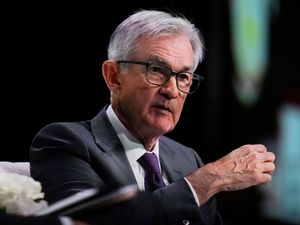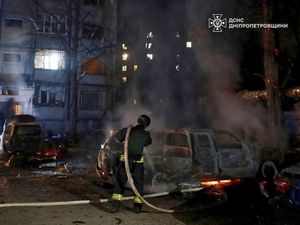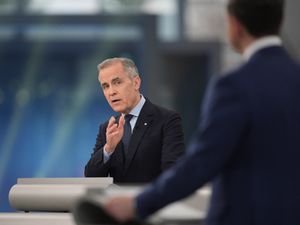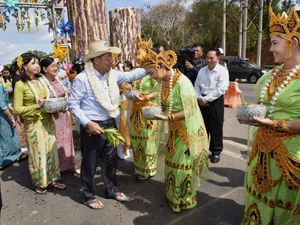El Salvador president refuses to release wrongly deported man back to the US
Kilmar Abrego Garcia has not been returned to the US despite court orders to do so.
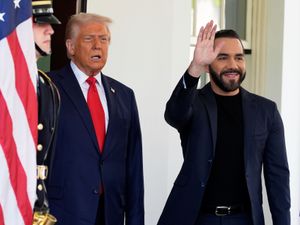
Donald Trump’s top advisers and the president of El Salvador have said they have no basis for the Central American nation to return a Maryland man who was wrongly deported there last month.
Trump administration officials emphasised that Kilmar Abrego Garcia, who was sent to a notorious gang prison in El Salvador, was a citizen of that country and that the US has no say in his future.
President Nayib Bukele, who has been a vital partner for the Trump administration in its deportation efforts, said “of course I’m not going to” release Mr Abrego Garcia back to US soil.
“The question is preposterous,” Mr Bukele said. “How can I smuggle a terrorist into the United States? I don’t have the power to return him to the United States.”
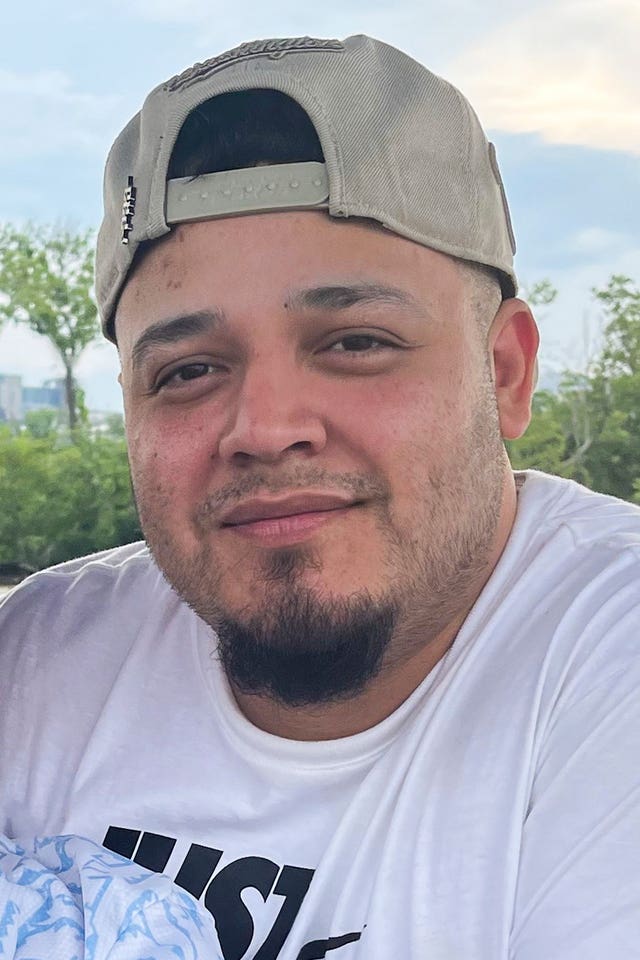
Should El Salvador want to return Mr Abrego Garcia, the US would “facilitate it, meaning provide a plane”, US attorney general Pam Bondi said.
But “first and foremost, he was illegally in our country, and he had been illegally in our country”, she said. “That’s up to El Salvador if they want to return him. That’s not up to us.”
The refusal of both countries to allow the return of Mr Abrego Garcia, who had an immigration court order preventing his deportation over fears of gang persecution, is intensifying the battle over his future.
It has also played out in contentious court filings, with repeated refusals from the government to tell a judge what it plans to do, if anything, to repatriate him.
The judge handling the case, Paula Xinis, is considering whether to grant a request from the man’s legal team to compel the government to explain why it should not be held in contempt.
El Salvador has been a critical part of the US administration’s mass deportation operation.
Since March, El Salvador has accepted from the US more than 200 Venezuelan immigrants — whom Trump administration officials have accused of gang activity and violent crimes — and placed them in the country’s notorious maximum-security gang prison just outside the capital, San Salvador.
It is also holding Mr Abrego Garcia, who has not been returned to the US despite court orders to do so.
That has made Mr Bukele, who remains extremely popular in El Salvador due in part to the crackdown on the country’s powerful street gangs, a vital ally for the Trump administration, which has offered little evidence for its claims that the Venezuelan immigrants were gang members.
Asked whether he had any concerns about the prison where deportees are being held, Mr Trump told reporters early on Sunday that Mr Bukele was doing a “fantastic job”.
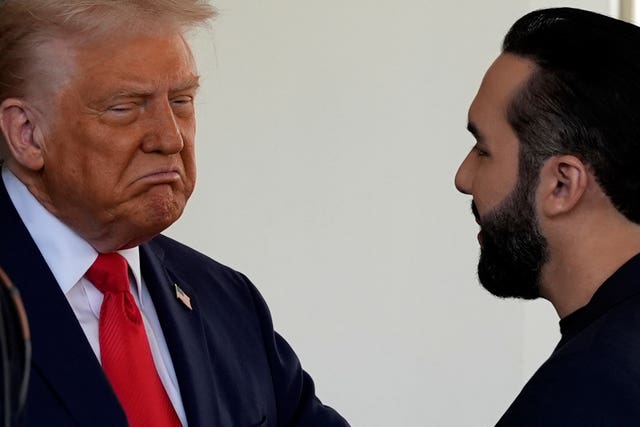
“I want to just say hello to the people of El Salvador and say they have one hell of a president,” Mr Trump said as he greeted Mr Bukele
“He’s taking care of a lot of problems that we have that we really wouldn’t be able to take care of from cost standpoint,” the US president added.
“He’s been amazing. We have some very bad people in that prison. People that should have never been allowed into our country.”
Since US secretary of state Marco Rubio’s visit in February, Mr Bukele — whose government has arrested more than 84,000 people as part of his three-year crackdown on gangs — has made it clear he is ready to help the Trump administration with its deportation ambitions.
He struck a deal under which the US will pay about 6 million dollars (£4.5 million) for El Salvador to imprison the Venezuelan immigrants for a year. When a federal judge ordered the Trump administration to turn around a flight carrying the immigrants already en route to El Salvador, Mr Bukele wrote on social media: “Oopsie … too late.”
Though other judges had ruled against the Trump administration, this month the Supreme Court cleared the way for the president to use the Alien Enemies Act, an 18th century wartime law, to deport the immigrants.
The justices did insist that the immigrants get a court hearing before being removed from the US. Over the weekend, 10 more people who the administration claims are members of the MS-13 and Tren de Aragua gangs arrived in El Salvador, Mr Rubio said.
“We’ve also found co-operation in other countries that are willing to take some of these people, some very dangerous criminals,” he said during a cabinet meeting on Thursday.

He added that Mr Bukele “has really been a good friend to the United States in that regard. These are some of the worst people you’ll ever encounter”.
Democrats have raised alarm about the treatment of Mr Abrego Garcia and other migrants who may be wrongfully detained in El Salvador.
Senator Chris Van Hollen of Maryland is pushing for a meeting with Mr Bukele while he is in Washington to discuss Mr Abrego Garcia’s potential return, and Jeanne Shaheen, the top Democrat on the Senate Foreign Relations Committee, urged the administration to release Mr Abrego Garcia and others “with no credible criminal record” who were deported to the maximum-security prison.
“Disregarding the rule of law, ignoring unanimous rulings by the Supreme Court and subjecting individuals to detention and deportation without due process makes us less safe as a country,” Ms Shaheen said.
Mr Trump has said he would also favour El Salvador taking US citizens who have committed violent crimes, although he added: “I’d only do according to the law.”
It is unclear how lawful US citizens could be deported elsewhere. White House press secretary Karoline Leavitt said such citizens would be “heinous, violent criminals who have broken our nation’s laws repeatedly”.
The Supreme Court has called for the administration to “facilitate” the return of Mr Abrego Garcia, who had an immigration court order preventing his deportation to his native country over fears of gang persecution.
Ms Leavitt said the administration’s job is “to facilitate the return, not to effectuate the return”, but Mr Trump indicated later on Friday that he would return Mr Abrego Garcia to the US if the high court’s justices said to bring him back.
“I have great respect for the Supreme Court,” he told reporters. Government lawyers indicated in a legal filing on Saturday that Mr Abrego Garcia remains in El Salvador but did not detail what, if any, steps the administration is taking to return him to the US.

